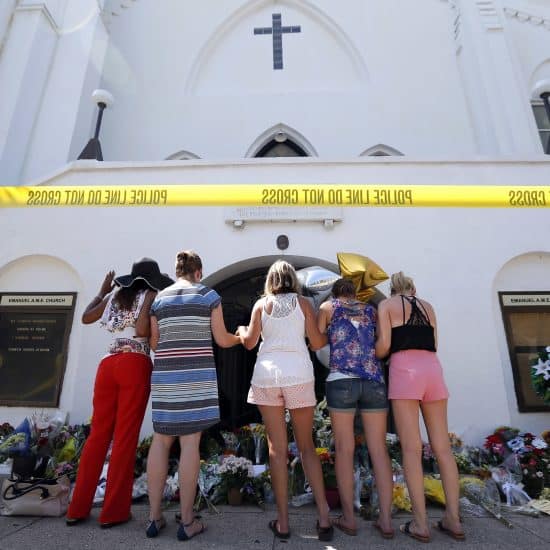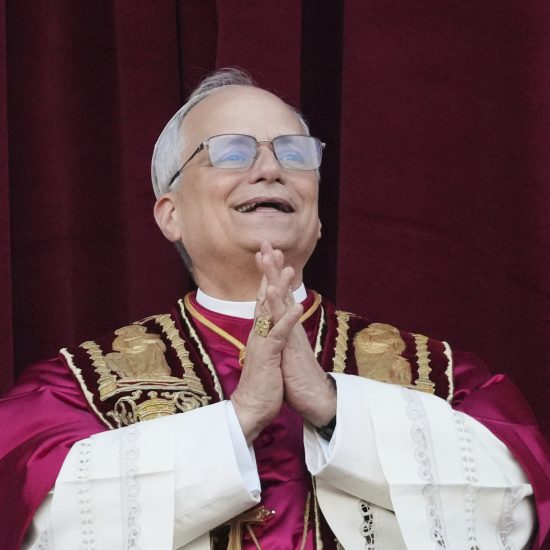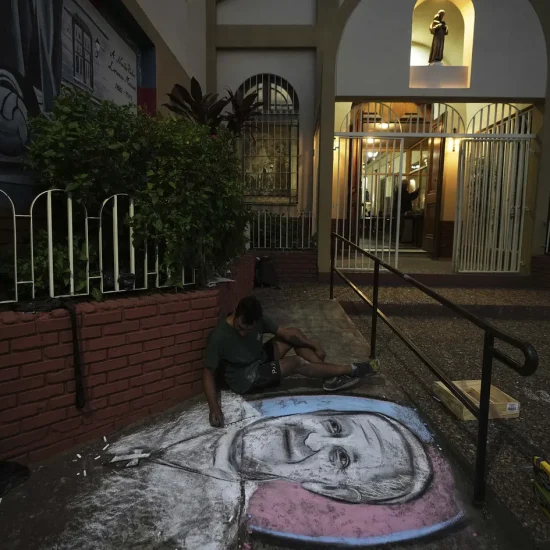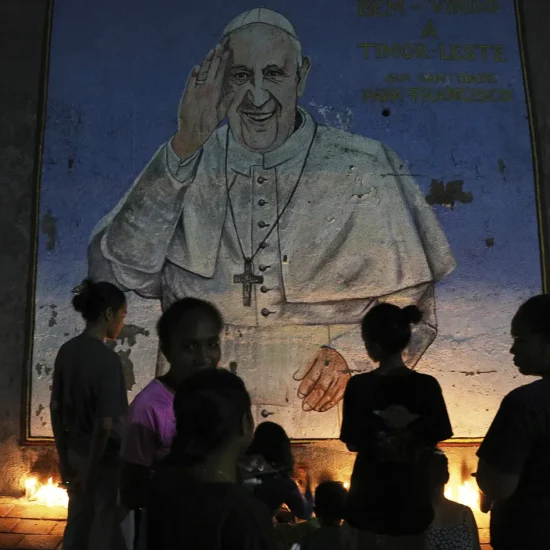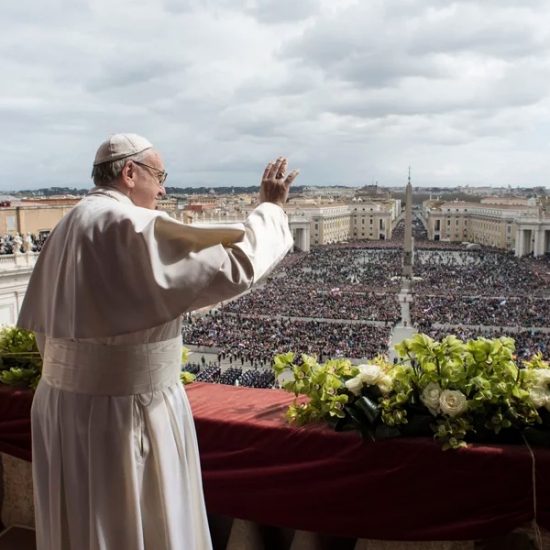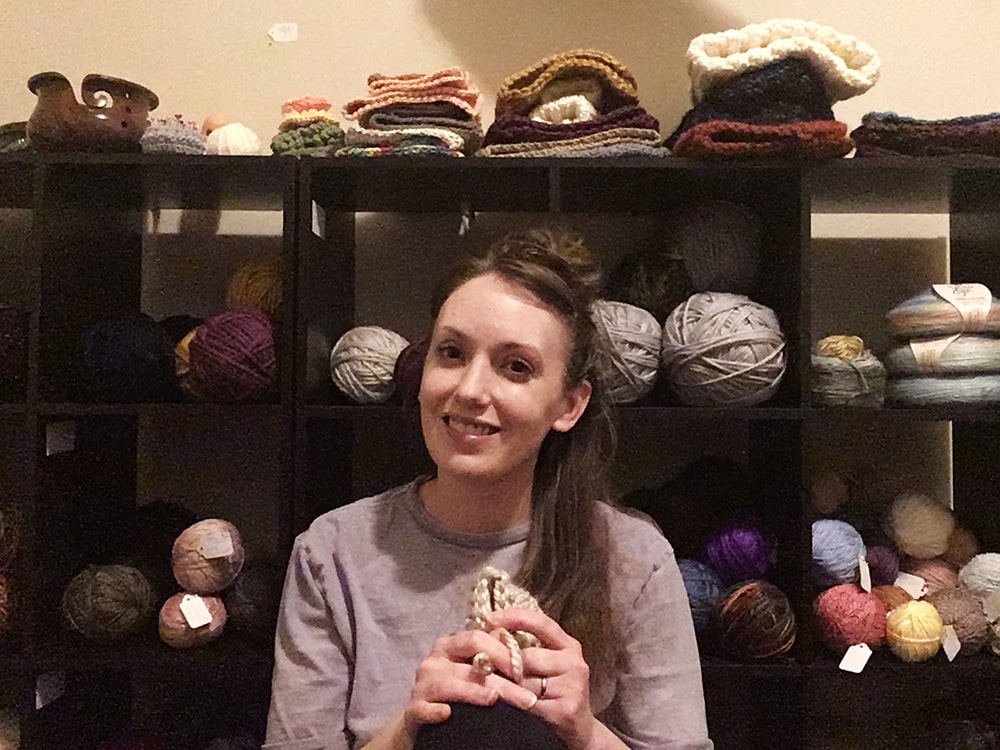
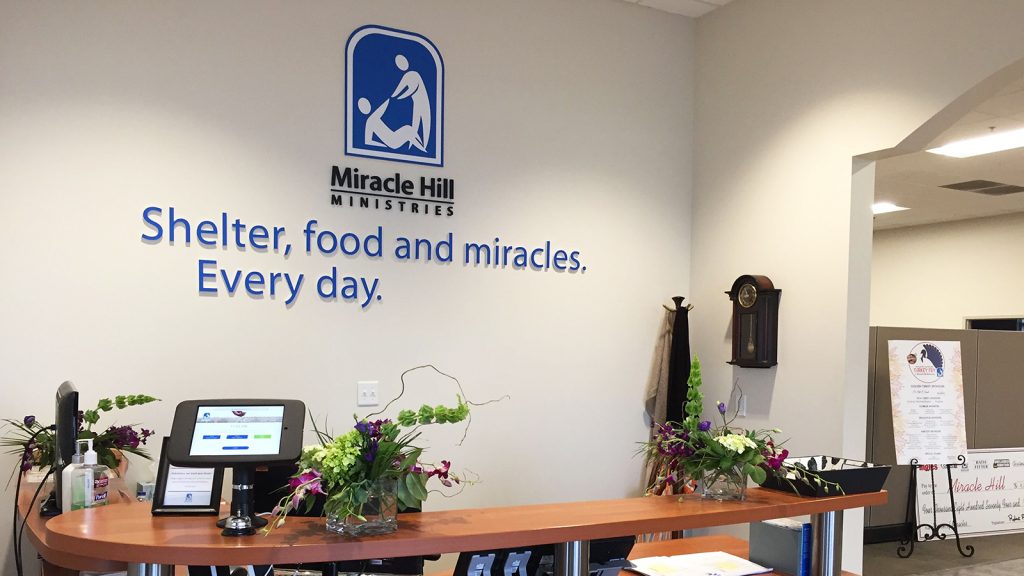
The front office of Miracle Hill Ministries in Greenville, S.C. RNS photo by Yonat Shimron
(RNS) — Growing up in the South, Aimee Maddonna was aware of its jaundiced views of Catholics.
But even she was shocked by the persistence of Catholic bias when she applied four years ago to be a mentor to foster children at a group home run by Miracle Hill of Greenville, S.C., an evangelical ministry.
Before jotting her signature on a form, Maddonna was asked by the volunteer coordinator at Miracle Hill what church she goes to.
“Our Lady of the Rosary in downtown Greenville,” she replied, citing the name of her Catholic church.
And with that, her application was summarily rejected.
“It didn’t strike me as something that was a possibility,” said Maddonna, the mother of three children.
For many Catholics in the Upstate, the 10-county westernmost region of South Carolina, Catholic bias is a startling yet eerily familiar part of being a minority amid a vast sea of Protestants.
While there’s no overt hostility, some local Catholics say, it lurks like a shadow.
“It’s a pretty common belief here in the South that Catholics are not Christian,” said Maddonna.
“You get to chatting with somebody and they’ll ask, ‘Where do you go to church?’” said Maddonna. “You tell them and they’ll say, ‘Oh, I’ll pray for you,’ or ‘Have you thought about becoming Christian?’”
The Catholic Diocese of Charleston has accepted this reality. Last week it issued a statement saying it supports government’s decision to allow Miracle Hill to discriminate against Catholics in its foster care program.
But Catholics like Maddonna are fighting back.

Aimee Maddonna is suing both the federal government and the South Carolina government for allowing Miracle Hill Ministries to unconstitutionally discriminate against non-Protestants. Photo courtesy of Americans United
Earlier this month (Feb. 15), Maddonna sued the federal and state governments, accusing them of allowing Miracle Hill Ministries to unconstitutionally discriminate against non-Protestants. The suit challenges a U.S. Department of Health and Human Services exemption that allows all foster care agencies in South Carolina to disregard a regulation barring religious discrimination in federally funded foster care programs.
“The United States government and the government of South Carolina have enabled, sanctioned, and continued to fund the organization’s preference for one religious group above all others in the provision of governmental services, to the detriment of the children that the State contracts with those agencies to serve,” reads the suit, filed in U.S. District Court.
Miracle Hill has also turned down Jews and other non-Protestants who applied to mentor or foster children.
But the agency’s refusal to work with Catholics places the government in the middle of a battle over who is the right kind of Christian, according to Maddonna’s lawsuit, filed by Americans United for the Separation of Church and State.
For much of the past 50 years, Protestants and Catholics have resolved battles that led European Protestants and Catholics to wage wars for centuries.
The U.S. elected John F. Kennedy, the first Catholic president, in 1960, and in the following two decades, heated social conflicts over sexual morality and abortion led many Catholics and Protestants — especially conservatives among them — to see each other as allies in a political fight that transcended theological arguments.
At the annual March for Life in Washington, D.C., for example, Catholics and evangelicals have marched alongside one another for years. More recently, the legalization of same-sex marriage has led both to invoke religious freedom as the new bulwark against society’s liberalizing trends.
Rick Warren, pastor of the Southern Baptist-affiliated Saddleback Church in California, cultivated deep ties to several Catholic bishops and was a guest of honor at the Vatican a few years ago.
But in South Carolina, where a stricter, fundamentalist Protestantism predominates, bias against Catholics persists.
Miracle Hill, the largest provider of care to the needy in the Upstate, runs a vast network of homeless shelters, thrift stores, drug-recovery programs and a foster care agency. While it takes no government money for its adult programs, four years ago the ministry began accepting federal and state dollars for its foster care program.
Last year, it received about $600,000 in public funding.
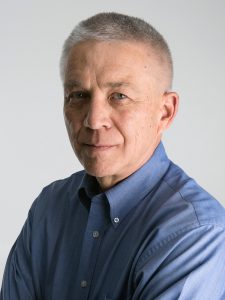
Reid Lehman, Miracle Hill’s CEO. Photo courtesy of Miracle Hill
But Miracle Hill doesn’t view itself as a social service agency. It is first and foremost a ministry and chooses to allow only churchgoing Protestants — “born-again Christians,” in its parlance — to staff the ministry, volunteer and foster children.
“We are an arm of the Protestant church,” Reid Lehman, Miracle Hill’s CEO, told Religion News Service recently. “We exist to be a mission arm of Protestant churches and to proclaim Protestant faith. It’s not a judgment or an exclusion. It’s simply that we’re going to be consistent with that.”
Lehman, like his father who preceded him as CEO, graduated from Bob Jones University, a bastion of Christian fundamentalism, just five miles away from the Miracle Hill offices.
Bob Jones Jr., the school’s former president, was a known for his hostility to the Catholic Church, calling it “a satanic counterfeit,” for example, and “drunk with the blood of the saints.”
In 1987, when St. John Paul II visited South Carolina and held an ecumenical service at the state university’s football stadium, Bob Jones’ leaders protested.
Historically, Protestants have objected to the office of the pope; devotion to Mary, the mother of Jesus, and to the saints, which some Protestants see as a form of idolatry; as well as several doctrines, including justification by faith, which Catholics and Protestants understand differently.
Catholic priests in the Upstate have tried for years to team up with Miracle Hill on a host of social service projects, with no success.
Many said they admire the ministry’s commitment to the poor and the quality of its programs. (One of the ministry’s addiction recovery programs is actually based in a former Catholic monastery.)
The Diocese of Charleston even issued a statement affirming its support for the government waiver that allows Miracle Hill to refuse to license people who don’t share its faith, in part, some priests suggested, because it wants the ability to wield its own religious freedom claims.
“The Catholic Church has theological disagreements with Miracle Hill Ministries; however, we applaud their remarkable service to the poor and hope that they will continue and succeed in that service in our community,” the diocesan statement said.
These days, local priests take a live-and-let-live approach with Miracle Hill.
“The old battle lines have settled into a form of uneasy but quiet coexistence,” said Jay Scott Newman, pastor of St. Mary’s Catholic Church in Greenville. “People are just getting on with Christian life and faith in their own communities.”

